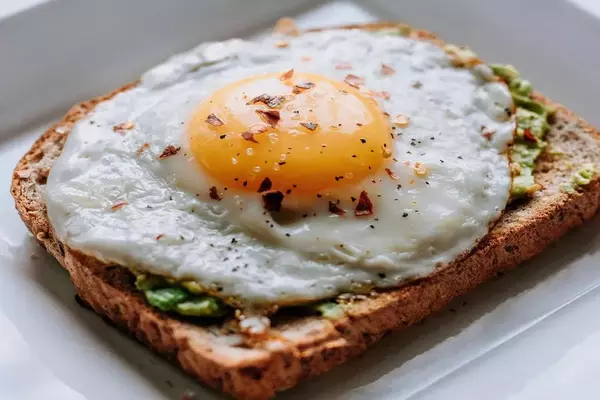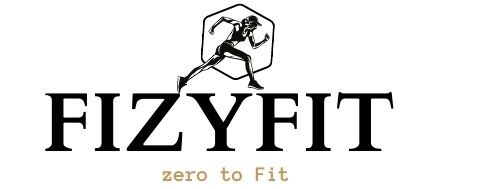Many people who are fat or overweight wish to lose weight. If you start eating fewer calories each day than you do during the day, you will begin to lose weight. There are many foods that diet programs allow and don’t allow.
Many people have the question; are eggs helpful in reducing belly fat or in weight loss? Do Eggs Burn Belly Fat? This article will give you in-depth knowledge about it.
The number of calories in an egg is a problem for those trying to lose weight. Even while eating eggs alone won’t make you lose weight, they are a great source of protein for any diet.
Whatever time of day is a great time to have eggs for lunch. They are advantageous for everyone’s diet and well-being, but those attempting to reduce weight can benefit from them. Eggs are a protein-rich meal. It also offers a variety of beneficial nutrients.
Also read: How Does Pineapple Burn Belly Fat?
Proteins are supposed to aid with weight loss attempts. Proteins are more nutrient-dense than fats and carbohydrates. Eggs assist you in losing weight by keeping you from feeling deprived for a longer time, even if they won’t instantly eliminate your abdominal fat and additional weight.
One egg weighs 6 grams and contains all nine “essential” amino acids, which are the building blocks of protein. Since these are the ones that your body cannot manufacture on its own, this is important. The egg white contains only a small amount of saturated fat and calories and around half of that protein.
Also read: Best 10 Homemade Drinks To Lose Belly Fat Fast
You know your exact calorie intake, averaging 70 calories for each egg. They are also portable. After they’ve been hard-boiled, place a few in your cooler. A salad or a few pieces of bread can be added to create a quick, wholesome dinner. At 20 cents a dose, it is unbeatable for a very nutritious supplement that is also reasonably priced.
Table of Contents
What is the Nutritional Value of Eggs?
Eggs are a rich source of vitamin B2 (riboflavin), vitamin B12, vitamin D, selenium, and iodine. They entail other essential minerals and microelements, such as phosphorus, vitamin A, and some vitamin B, such as folate, biotin, pantothenic acid, and choline.

Nutrition Facts
Portion Size: 50 g
Amount Per Portion: 72 g
| Calories | % Daily Value * |
| Total Fat | 4.8g 6% |
| Saturated Fat | 1.6g 8% |
| Cholesterol | 186mg 62% |
| Sodium | 71mg 3% |
| Total Carbohydrate | 0.4g 0% |
| Dietary Fiber | 0g 0% |
| Sugar | 0.2g |
| Protein | 6.3g 13% |
| Vitamin D | 1mcg 5% |
| Calcium | 28mg 2% |
| Iron | 0.9mg 5% |
| Potassium | 69mg 1% |
*The% Daily Value (DV) specifies how much of a nutrient a portion of food delivers for a person’s daily diet.
Also read: 16 Foods that Burn Belly Fat Fast
In 2000, the American Heart Association (AHA) revised its dietary guidelines and stated that healthy people could consume eggs again. The AHA guidelines now permit healthy people to eat one egg per day while still suggesting a daily total cholesterol limit of 300 mg. Having a high cholesterol content; eggs are the source of the enigma concerning them. A large egg has 213 mg of cholesterol, two-thirds of the recommended daily intake.
Eggs are inexpensive, easy to prepare, loved by both young and old, and flexible in any meal. If folks prefer designer or regular eggs, control how many they eat over a week. For the balance of the week, limiting foods high in cholesterol and saturated fat is best.
Do Eggs Cause Belly Fat?
Many people pick egg whites because of their low-calorie count and the popular misunderstanding that egg yolks increase cholesterol and body weight.
Nevertheless, removing the yolk results in losing all the vitamins and minerals that are fat-soluble and water-soluble in eggs.
Despite their poor image, egg yolks are a rich source of nutrients and proteins that can aid with obesity management. Vitamin D, important for calcium homeostasis, is also in egg yolks.
Do Eggs Burn Belly Fat?
An egg is a high-protein, reduced meal packed with nutrients ( Vitamins B12, Vitamin D, folate & Vitamin A). Eating eggs may help one lose weight, especially if they are part of a calorie-restricted diet.
Research suggests that eating eggs may increase enzymatic reactions and sensations of satiety.
When trying to lose weight, You should include eggs in your diet or meals, which keeps you fuller for longer.
Also read: DOES BUTTER INCREASE BELLY FAT? Smackdown!
Maintaining muscle mass while losing weight is essential because eggs are high in protein, which can keep your resting metabolic rate high.
Eating eggs does not reduce belly fat. Fat is always reduced from the entire body, not just from a specific area. You start to see weight loss when you combine your diet with exercise.
Eggs for breakfast help someone avoid consuming too many calories throughout the day.
Avoid overly frying eggs in fat, such as butter or oils, to promote weight loss. Individuals at risk for coronary heart disease should limit their egg consumption to egg whites and carefully monitor their cholesterol intake.
Also, eggs contain a few distinctive qualities that make them highly beneficial for weight reduction. Even though many factors might contribute to obesity, one of the most clinically verified ways to assist in weight loss is to reduce calories or increase daily caloric activity.
Does Egg Yolk Make You Fatter? Or Does Egg Yolk Increase Belly Fat?
The egg is a rich source of nutrients. One full egg contains around 6 grams of high-quality protein. Eggs are a comparatively affordable and nutrient-dense food item. The majority of the protein is present in the egg white. Yet yolks also have a lot of nutritional value. Protein, cholesterol, and vitamins A, D, E, and K are all found in them in good amounts. It is unhealthy to consume eggs that have been cooked in butter. There is a midway point available while counting calories. They might save certain yolks while preparing well over one egg while leaving out some. This way, you may get nourishment from the yolk without ingesting too many calories or fat.

How to Reduce Belly Fat While Eating Eggs?
The consumption of eggs for breakfast is quite healthy. Eggs are frequently consumed boiled or in light meals like omelets, sandwiches, salads, and bhurjis. Cooking with butter or cooking oil contributes to higher calorie and lower nutritional intake. We will, however, give you a short piece of advice to make your breakfast healthy.
Strive to fry your eggs in coconut oil. It has the right amount of healthy fat, which promotes weight loss. The combustion will increase by 5% if we eat (one teaspoon of) coconut oil for supper, aiding in weight loss.
How Many Eggs Should You Consume Every Day?
The egg is among the superfoods known to man. One whole egg has all the nutrition our body needs. It is a strong source of vitamins B12, D and other antioxidants that work together to keep us strong and stave off chronic diseases. It is a balanced protein source. Nevertheless, eating too many eggs is not considered healthy due to the high cholesterol content in the yolk. Furthermore, consuming too many eggs has been linked to stomach issues.
Eggs are a cheap and easy addition to any diet. A smart way to prepare eggs is to boil or poach them without adding salt. Frequently, eggs from free-range farms that are omega-3 enriched are the tastiest. According to the individual, having one to three eggs a day can have a variety of positive effects on one’s health. People might expect slight alterations in their cholesterol readings around this dietary level. It is still being determined if a maximum amount of eggs can be eaten each day. Further study is required on this subject to offer clarification. However, when individuals are in good health and consume eggs in balance, they aren’t expected to have any detrimental bodily effects.
Other Benefits of Eggs
Eggs also aid in the preservation of healthy, strong bones and muscles. An average human should consume no more than two eggs per day when following a regimen of moderate-intensity exercise. Making eggs is also very important. Eggs are the ideal choice as they don’t include any additional oil, fat, or calories. A couple of eggs with various vegetables, salads, or fruits at least twice daily is another version of The Boiled Egg Diet. As an aid in weight loss, these eating regimens mostly emphasize cutting out or lowering carbs from the diet.
Despite being relatively tiny and filled with nutrients, eggs are a staple in a well-balanced diet. A big-boiled egg encompasses: and has roughly 77 calories-
1. Nutritious
Zinc
Folate
Calcium
Selenium
Phosphorus
Six grams of protein
Five grams of healthy fats
Vitamins A, D, E, K, B5, B6, B12
2. The consequences of eating eggs depend on the person. It’s true that eggs, especially egg yolks, are high in cholesterol. One large egg has around 186 mg of dietary fat. Before taking eggs off the menu, learning more about the nutritional advice provided by the U.S. Department of Agriculture (USDA) is crucial. According to one study, eggs had no effect on cholesterol levels for almost 70% of people. According to the study, eating cholesterol does not raise blood cholesterol levels. Egg consumption can raise total and hypercholesterolemic (HDL) cholesterol in 30% of persons.
3. Eggs elevate good cholesterol
Egg consumption increases lipoprotein (HDL), or “good” cholesterol. A lower risk of heart disease, stroke, and other disorders is linked to higher HDL levels. Consuming two eggs daily for six weeks raised HDL levels by 10%, based on one research.
4. Invest in choline
Choline, a water-soluble vitamin, is commonly grouped with the B vitamins. It is used to build cell membranes and supports the synthesis of signal transduction in the brain.
A hard-boiled egg has around 147 mg of choline or 27% of the daily amount recommended by the U.S. Food and Drug Administration (FDA).
5. Get enough proteins and amino acids to ingest
Including a lot of protein in our meals is essential for preserving our bodies’ health. An egg contains around six grams of protein and certain healthy amino acids. Getting the protein we require daily can help with blood pressure management, bone health, weight control, and increased muscle mass.
6. They have no negative effects on the heart
Unlike popular belief, there is no link between eating eggs and developing heart disease or stroke.
Nevertheless, according to another study, those with diabetes who consume eggs have an increased risk of developing heart disease.
Numerous studies have shown that those who eat eggs and stick to a low-carb diet are less likely to get heart disease.
7. This food fills you up
Eating eggs for breakfast is often believed to help you feel fuller for longer due to the high protein level of eggs. Whether you eat an omelet for breakfast or a hard-boiled egg as a snack, eggs can help you feel satiated for longer after or between meals.
8. Linked to a reduced risk of heart disease
LDL cholesterol is frequently referred to as “bad cholesterol.” High LDL levels are generally acknowledged to increase the risk of developing heart disease. Many people may need to realize that LDL is divided into subtypes depending on the value of the particles, though.
Egg Recipes for Belly Fat Loss
One of nature’s best-balanced meals is the egg. They include a lot of protein but no sugar or carbs. Nevertheless, some individuals use egg whites when making healthy meals because they worry about the yolk’s calorie content. An idea from us? Use the entire egg to get the maximum nutritional value!
It was once believed that egg yolks’ high cholesterol content was to blame for their unfavorable notoriety for raising cholesterol; however, a recent study refutes this theory. Moreover, eggs are a great site of choline, a vitamin that helps the body transfer nutrients across the body and fights fat. Choline is found in yolks.
While striving to eat healthily, eggs are a great option for breakfast, lunch, dinner, or even a snack. The key is to utilize eggs in various dishes, seasoning them with various spices or other seasonings and presenting them alongside a tonne of wholesome grains and vegetables.
Explore these nutritious egg breakfast dishes to turn your typical breakfast into some less basic egg dishes you could eat at any time of the day.
Egg Recipes Without Oil
When attempting to lose weight, eggs can be your greatest friend! According to a study, eggs may boost your body’s metabolism and prolong your feeling of fullness. If you eat eggs for breakfast, you can avoid consuming extra calories throughout the day. Even celebrities, including actors and athletes, try to eat eggs, especially in the morning.
Boiling Eggs in a Fun Way
Boiling eggs is one of the easiest egg recipes to prepare. These have a lot of protein but few calories. Add some finely chopped spring onions, coriander leaves, oregano, and red chili flakes if you find them boring.

Poached Eggs With a Creamy Texture
Poached eggs are a great option to be included in oil-free eggs in your diet if you want a runny yolk. Poaching an egg may take some practice; however, once you get the knack for it, you can do it in under 5 minutes. Two poached eggs and a slice of brown or multigrain bread might constitute a nutritious breakfast, as one poached egg may not make you feel as satisfied.

A Boiled Omelette
Unquestionably, you don’t need even a tiny bit of butter or oil to make a delicious omelet. You may make this dish by adding vinegar to boiling water. Following mixing several eggs with salt to taste, drop them into the boiling water. You’ll notice that the eggs will layer up and rise to the top of the boiling water. Discard it after it has finished cooking. The final step is to garnish with oregano, chopped green chillis, chopped coriander, or any other healthful ingredient of your choice. This low-calorie omelet is being cooked for a filling morning meal.

Simple to Make Scrambled Eggs
Whenever unsure, scramble your eggs for a filling egg breakfast. Furthermore, copious amounts of butter or desi ghee can create delicious scrambled eggs. The actions you need to do now that we won’t use oil are listed below. Three tablespoons of milk, two eggs, and water should be added to a pan. All the components should be carefully mixed with a whisk until the eggs seem creamy. You may turn off the burner when the eggs seem almost done, as they continue to cook even after the heat is turned off. As desired, add salt and pepper after tasting. You may also offer scrambled eggs with a fresh veggie salad.

A Mug of Broccoli-Cheese Eggs
This preparation for eggs in a mug is ideal if you want a decent meal without having to cope with the trouble of washing many frying pans. Since it is for one serving, it is a fantastic choice for weekday breakfasts when you only want to eat and leave.
Eggs Baked in Ten Minutes With Mushroom and Spinach
The small ceramic jars are perfect for preserving meat, cheese, eggs, and vegetables before baking.10 minutes later, a nicely cooked egg with soft yet firm whites and a deliciously runny yolk is revealed, encircled by a savory and satisfying accompanying ensemble.
Conclusion
A low-calorie, nutrient-rich snack is a hard-boiled egg. In addition to offering a significant amount of high-quality protein, there is also an excellent source of vitamins B, calcium, zinc, and other essential micronutrients and antioxidants, along with choline, lutein, and zeaxanthin.
Amidst being high in cholesterol, eggs don’t appear to increase the risk of cardiovascular disease. Hard-boiled eggs have less fat and calories than fried eggs since no additional oil or butter is required in their processing. It might be one of your diet’s most straightforward and healthy supplements.
The yolk is supposed to provide the most nutrients, aid digestion, boost immunity, and reduce blood pressure.
The nutritional benefits of an egg are always determined by its size, place of origin, and processing techniques. Another element is the caliber of the chickens. The cooking process significantly impacts the egg yolk’s final nutritional makeup.
For illustration, frying a whole egg in oil may increase a meal’s total fat and cholesterol content by three or four times. Salmonella contamination is a possibility if it is not kept properly. When raising eggs, it’s critical to practice impeccable hygiene.
I hope this post gives you in-depth knowledge on Do Eggs Burn Belly Fat or not?
Frequently Asked Questions
Q1: Can eating 4 eggs per day reduce belly fat?
Ans: Although eating eggs won’t immediately eliminate your belly fat and extra weight, they help you lose weight by preventing you from feeling hungry for a while. Another method for decreasing weight is eating a high-protein diet.
Q2: How many boiled eggs should I eat daily to lose weight?
Ans: The fresh egg diet is founded on the belief that consuming two to three hard-boiled eggs might aid in weight loss.
Q3: Are eggs a good fat burner?
Ans: High-protein foods like eggs can enhance your caloric intake to aid with weight loss. Due to the additional energy required to assist in processing the protein in meals, an elevated diet may raise your metabolic rate by up to 80–100 calories per day.
Q4: Are boiled eggs good for losing belly fat?
Ans: Among the tiniest thing you can do if you’re attempting to lose weight is to include eggs in your diet. It could make you feel more satisfied and motivate you to eat fewer calories daily. Eggs are also an excellent intake of vitamins and minerals, sometimes deficient in the diet.
Q5: Do scrambled eggs help you lose weight?
Ans: Eggs are a nutrient-dense, low-calorie meal that is high in protein. Eating eggs may aid in weight loss, particularly if one includes them in a diet restricting calories. Eggs may improve enzymatic reactions and sensations of satiety, according to studies.
Q6: Best time to eat eggs for weight loss?
Ans: The secret is to include them in a balanced diet. The greatest strategy is eating eggs for breakfast, which could help someone ingest fewer calories throughout the day. Eggs are delicious and simple to make.
